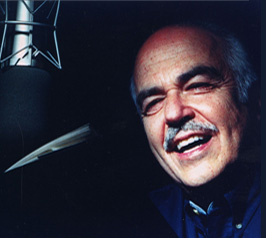Audiobook Contemporaries: The Corrections by Jonathan Franzen
Five Simultaneous Lives
I woke up the other day thinking about Gary Lambert, the downtrodden middle-aged corporate family man who could have almost been me ten years ago, but who instead is one of Jonathan Franzen’s unfortunate characters in The Corrections. I realized that, like Gary, I was nauseous and depressed. I also realized that my woeful condition was Gary’s fault. Gary and his entire pathetic family of Lamberts, and everyone that crosses their path in The Corrections, because besides being a masterful work of fiction The Corrections is one nauseating and depressing read.
It is the story of five individual lives - Alfred and Enid Lambert and their children Chip, Gary and Denise – in the months leading up to a go-go nineties Christmas. If there is a main plot it revolves around the possible gathering of this completely dysfunctional group at the family home in St. Jude, Kansas. Woven into the main thread are both sub-stories happening in real time and “switchbacks”. But even though a sub-story or a particular event may be happening in the past, Franzen’s narrator tells each story in the present tense, as if it is happening now. By keeping his eye on the action he avoids “telling” the past and keeps the narrative in constant motion back and forth though time. In the hands of a less-skilled writer this present tense rendering of main events leading off into a maze of past events and then brought back to the present moment could end up reading like a bowl of narrative spaghetti. With Franzen, we get the sense that even though the story may seem to consist of many strands it’s really all one big, consistent, if somewhat directionless noodle. So it is Franzen’s narrative skill, along with the consistent use of tone and language, and the balance of dialogue and exposition, that provides an accessible foundation for a broad audience of varying levels of sophistication. Add to that the peppy, inventive use of lively vocabulary, a comfortable variation of line length, precise attention to the important supportive detail, a natural infusion of profanity and we’ve got a contemporary blockbuster. Clearly that has been the general view of a vast majority of readers.
Jonathan Franzen

A Snippet on The Author
This from WikiPedia:
"Jonathan Earl Franzen (born August 17, 1959) is an American novelist and essayist. His 2001 novel, The Corrections, a sprawling, satirical family drama, drew widespread critical acclaim, earned Franzen a National Book Award, was a Pulitzer Prize for Fiction finalist, earned a James Tait Black Memorial Prize and was shortlisted for the International IMPAC Dublin Literary Award. His most recent novel, Freedom (2010), led to a controversial[2][3] appearance on the cover of Time magazinealongside the headline "Great American Novelist".[4][5]"
This from me:
The Corrections is the book behind the well publicized flap between the author and Oprah, where Franzen bemoaned the pigeonholing of his book as "chick lit" because Oprah's team liked it. He ended up getting canned from the show, and the resulting media attention helped make The Corrections. As WikiPedia points out:
"These events gained Franzen and his novel widespread media attention. The Corrections soon became one of the decade's best-selling works of literary fiction. At the National Book Award ceremony, Franzen said 'I'd also like to thank Oprah Winfrey for her enthusiasm and advocacy on behalf of The Corrections.'"
The Visual

Beautifully Rendered Ugly People
I could barely make it through The Corrections. I would read, shake my head, grit my teeth in anger. What is the point, I asked, besides making us marvel at the gorgeous, lyrical prose, laughing at these bumbling character’s who at times seemed to be reading from Hollywood film scripts? What is the point, besides claiming to be holding a mirror up to the ugly American People and our ugly American Culture?
The only answer that I’ve found to be workable is that those are exactly the questions that Franzen poses, and he poses the questions by creating this omniscient narrator who, far from being an objective third party hired to report on the action, is himself a troubled soul who can’t help but infuse everything - every gesture, every expression, every movement of air, everything the characters do, think or feel – with a nauseating cleverness: a simile, a metaphor, a turn of phrase, a sleight of hand, a spelling-bee vocabulary word or, worse, a character whipping an inscrutable scientific theory out of their ass. Franzen’s narrator is himself the ugly one, the pessimist who would have us believe his bleak rendering contemporary American culture.
We are warned early on that this story is intended to be a gross exaggeration of “real” life. In the beginning of the section entitled “The Failures” one of the principals (Chip) gives a seventeen line speech in the middle of a harried scene after his girlfriend, Julie, walks out on him right as his parents arrive for lunch.
“I’m saying the structure of the entire culture is flawed,” Chip said. “I’m saying the bureaucracy has arrogated the right to define certain states of mind as ‘diseased’. A lack of desire to spend money becomes a symptom of disease that requires expensive medication. Which medication then destroys the libido, in other words destroys the appetite for the one pleasure in life that’s free, which means the person has to spend even more money on compensatory pleasures. The very definition of mental ‘health’ is the ability to participate in the consumer economy. When you buy into therapy, you’re buying into buying. And I’m saying that I personally am losing the battle with a commercialized, medicated, totalitarian modernity right this instant,” (p. 31)
Immediately, red flags start popping up across the audience because everybody knows that, while entertaining, no real human being, nobody you’ve ever known or will know will ever speak that way in that situation. Not even disturbed people like Chip talk like that. When Franzen’s narrator turns the phoniness volume up to 10 in the first 1000 words it becomes pretty obvious that nothing from this point forward is to be taken seriously, because these characters aren’t not supposed to portray real people!
To the narrator though, these people – caricatures, really -- are his own grim reality. They’re his homeys. Some are perhaps not as stupid, malicious, diseased, depressed, drunk, cynical, and dishonest as others but they’re all just as generally snarky and unhappy as our narrator. This narrator has issues – he’s having a really bad time of it - and the Lambert family just happens to get caught in his sights as symbols of everything that is selfish, small-minded, trite and pathetic in our society. The blatant contempt the narrator has for the Lambert family and the characters that buzz around their disintegrating hive is almost comical. Indeed the only way to survive the breakneck narrative is to remind yourself that we were warned right up front that this was all in fun, for real people do not generally behave as these people do. Then you can laugh, for awhile at least.
The Book Trailer
The Loneliest Person on Earth
When I look at the narrator’s supreme arrogance and contempt he has for his characters as Franzen’s way of illustrating the general lack of compassion in American society, I am able to build some meaning into this overall reading experience. Unfortunately this doesn’t make the book any less depressing. My guess is that any reader left standing after a few hundred pages of relentless below-the-belt blows to the psyche would qualify for an appearance in The Corrections II. But if we take Franzen at face value and eliminate the possibility that author and narrator are not one in the same, we’re left with a meaningless portrait of a dysfunctional family in a dysfunctional society, completely devoid of love. If there is any sign of love, it is the awkward fawning that the demented and crippled Alfred attempts show for his intellectual but sex-crazed son Chip at the very end of the book. But even the tender moments are befouled with anxiety and distrust, thanks to our narrator who keeps us abreast of what the character’s are really thinking, versus what we might surmise from their actions. Even when Alfred can no longer express his disdain for everybody and everything, our narrator spares no detail in describing the indignity that Alfred must be feeling. My exhaustion by now is on par with poor Alfred, and I am more than ready for the narrator to “put an end to it.”
Ultimately it is Enid’s revenge, in the final pages, that encapsulates the mean spirit shared by the members of the Lambert family. If it is Franzen’s intention for the reader to stand up at the end and shout “go Enid!” with a hearty fist pump, he craters that intention by turning Enid into a woman incapable of forgiveness and compassion and whose only interest is to show her evil husband how wrong has been about everything.
“She’d felt Wrong all her life and now she had a chance to tell him how Wrong he was. Even as she was loosening up and becoming less critical in other areas of life, she remained strictly vigilant at the Deepmire Home. She had to come and tell Alfred that he was wrong to dribble ice cream on his clean, freshly pressed pants. He was Wrong not to recognize Joe person when Joe was nice enough to drop in. He was Wrong not to look at snapshots of Aaron and Caleb and Jonah. He was Wrong not to be excited that Alison had given birth to two slightly underweight but healthy baby girls.” (p. 567)
Etc. etc. etc. Never mind that Alfred can’t help behaving wrongly as a result of his dementia, our narrator lets Enid harp on him for what feels like several pages. But if we’re to understand our narrator correctly, this is exactly what we should expect. Nobody get’s out of The Corrections truly corrected. According to the narrator, American culture and the mean shortsighted selfish robots that define it are way too far gone for any real correction. Besides, corrections are by definition temporary, as are, fortunately for Jonathan Franzen, narrators. Because if this is the way Jonathan Franzen honestly feels about his fellow humans, he must be the loneliest person on earth.
The Narrator, George Guidall

About The Narrator
Make sure you're not driving on the LA Freeways or in SF's Chinatown when listening to The Corrections. George Guidall's narration is so good you might jump out the window.
This from WikiPedia:
George Guidall has recorded over 900 unabridged novels, bringing a consistent artistry to his readings and delighting listeners for over 20 years. His narrations of classics such as Crime and Punishment and The Iliad as well as best sellers like Snow Falling on Cedars and Lillian Jackson Braun's Cat Who ... series have set a standard for excellence recognized throughout the audiobook industry. His recordings have garnered uniformly excellent reviews from Audiofile,Library Journal, Publisher's Weekly, and a variety of national newspapers and magazines. Guidall received an Audie Award (the industry's equivalent to an Oscar) for best unabridged narration of a novel for his recording of John Irving's A Widow For One Year, an honor he captured again for his rendition of Wally Lamb's I Know This Much Is True. He's been nominated for best narration for David Robbins' War Of The Rats, Ken Follet's Code to Zero, Neil Gaiman's American Gods and his unabridged narration of Cervantes' classic, Don Quixote. Acclaimed as one of the original "Golden Voices" in Audiofilemagazine, he holds the record for the most "Earphone" awards (over 70) given by the magazine to any narrator for excellence in narration.








